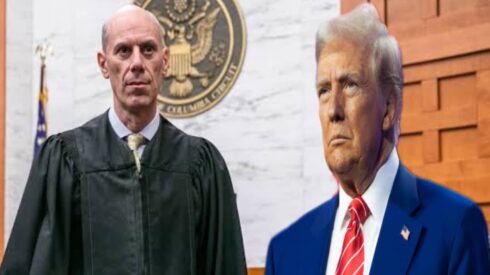U.S. District Judge Bozeberg has firmly rejected the Trump administration’s attempt to withhold key information about a deportation flight carrying Venezuelan migrants to El Salvador. In a strongly worded response, the judge deemed the administration’s argument for invoking the State Secrets Privilege as “woefully insufficient,” signaling a critical judicial challenge to the executive branch’s secrecy.
The judge’s ruling highlights the court’s insistence on transparency in immigration enforcement. By refusing to accept vague national security claims without substantive evidence, Bozeberg has positioned himself as a formidable barrier to unchecked executive authority. His decision not only impacts this case but also raises broader questions about how much secrecy the government can claim in immigration matters.
Court Orders Sworn Affidavit from Key Administration Official
In response to the administration’s lack of justification, Judge Bozeberg has ordered the Trump administration to submit a critical affidavit by 10 AM tomorrow. The affidavit must be a sworn declaration from an individual directly involved in the deportation flight, providing a clear rationale for why the information should be classified as a state secret.
This order forces the administration into a difficult position. If they fail to submit a convincing affidavit, the court may demand further disclosures or impose legal consequences. The ruling underscores the judiciary’s role in preventing executive overreach, ensuring that national security claims are not used as a shield for politically sensitive actions.
Trump Administration Struggles to Justify State Secrets Claim
The Trump administration’s argument hinges on the rarely used State Secrets Doctrine, which allows the government to block court access to classified information when disclosure could harm national security. However, Judge Bozeberg has indicated that this case does not clearly meet that standard, as the government has not provided specific reasons for its secrecy.
Legal experts suggest that the administration may be using the doctrine to prevent scrutiny of possible rights violations during the deportation process. If the court rejects the state secrets claim, the case could expose flaws in the government’s immigration policies and lead to broader legal challenges from civil rights groups.
The Alien Act and Its Expansive Executive Powers
At the center of the controversy is the Alien Act, a legal provision granting the president broad authority over immigration enforcement. The Trump administration has relied heavily on this law to justify aggressive deportation measures, often bypassing traditional judicial review.
Judge Bozeberg’s intervention signals growing judicial resistance to unchecked executive power in immigration cases. His demand for a sworn affidavit suggests that the court will not allow the administration to use vague national security concerns as a blanket excuse to avoid accountability. This could set a precedent for increased judicial oversight of immigration enforcement.
Potential Consequences for Executive Power and Judicial Oversight
If the Trump administration successfully argues that the deportation flight details are protected under the State Secrets Doctrine, it could significantly expand executive authority, limiting court oversight in immigration cases. This would make it more difficult for legal advocates to challenge controversial deportation policies, reducing transparency in immigration enforcement.
However, if Judge Bozeberg rejects the affidavit or demands further disclosure, it would reinforce judicial oversight as a check on presidential power. A ruling against the administration could embolden courts to take a more active role in scrutinizing government actions that impact immigrants’ rights.
Legal and Political Implications of Judge Bozeberg’s Decision
The outcome of this case could have far-reaching legal and political implications. If the judge rules against the administration, it could trigger additional lawsuits challenging the government’s use of the Alien Act and State Secrets Privilege in immigration matters. Such a ruling would be a major setback for the Trump administration’s immigration policies.
As the 10 AM deadline approaches, all eyes are on Judge Bozeberg’s courtroom. His handling of this case could shape the balance of power between the executive and judiciary, influencing how future administrations handle immigration enforcement and national security secrecy. The coming hours will determine whether the government can justify its secrecy—or if the courts will demand full transparency.














